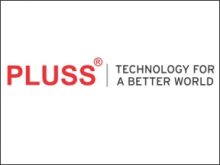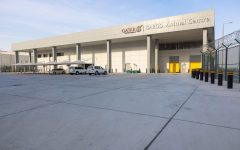 PLUSS Advanced Technology (PLUSS) has been granted patent by European Patent Office, Germany for its ‘Celsure’ box designed and manufactured using the proprietary Phase Change Material (PCM) technology, to transport vaccines and perishable commodities at a specific temperature range. The patent was granted to the innovative method of arranging PCMs which leads to precise temperature control in varying ambient conditions and increases operational efficiencies for the end user. The patent has also been applied in USA, Singapore, Brazil and India. PLUSS expects these patents to be granted soon as well.
PLUSS Advanced Technology (PLUSS) has been granted patent by European Patent Office, Germany for its ‘Celsure’ box designed and manufactured using the proprietary Phase Change Material (PCM) technology, to transport vaccines and perishable commodities at a specific temperature range. The patent was granted to the innovative method of arranging PCMs which leads to precise temperature control in varying ambient conditions and increases operational efficiencies for the end user. The patent has also been applied in USA, Singapore, Brazil and India. PLUSS expects these patents to be granted soon as well.
“This is a major endorsement for our research and development and also India’s preparedness in efficient cold chain supply management. These boxes will play a vital role in maintaining precise temperature during transport of various COVID-19 vaccines being tested in India and abroad. The technology is already commercialized and is used by various multinational pharmaceutical and logistics companies in India. We are in conversations with Covid-19 vaccine distribution stakeholders to make our products available across the country. The latest MoU being with SpiceJet,” said Samit Jain, MD, PLUSS.
While, transporting pharmaceutical products, biological products or vaccines in particular, the need to maintain precise temperature ranges is very important and the efficacy of vaccine can be impacted if the temperature goes above or below the specified range. PLUSS’s proprietary, made in India PCM technology ensures that precise temperature ranges are maintained and at costs much lower than similar international solutions.
Celsure is a simple box-in-box transport solution developed by the R&D team at PLUSS which uses indigenously developed Phase Change Material (PCM) that will maintain the right temperature from a few hours to a few days to ensure that vaccines retain their potency. PLUSS has designed nearly 40 different PCM solutions for different temperatures, ranging from -77C to +89C.
Breaking News
- ACAAI discusses AEO benefits, tech, collaboration at FIATA meet
- Aerios by CharterSync launched to boost air cargo operations
- Qatar Cargo opens new facility for animal transportation
- NDR Warehousing inaugurates Rs 95 crore facility in Pune
- KPMG, Arkieva join strategic forces to transform supply chain ops
- ‘Highways construction crucial to facilitate seamless cargo movement’
- Menzies extends cargo handling deal with Malaysia Airlines
- Global air cargo rates ready: TAC Index
- ‘Gati Shakti, NLP driving infra growth & reducing logistics cost’
- ‘Govt’s initiatives aim to enhance efficiency and reduce logistical costs’
- DHL strengthens disaster response, expands GoHelp programme to Europe
 Cargo Breaking News
Cargo Breaking News


